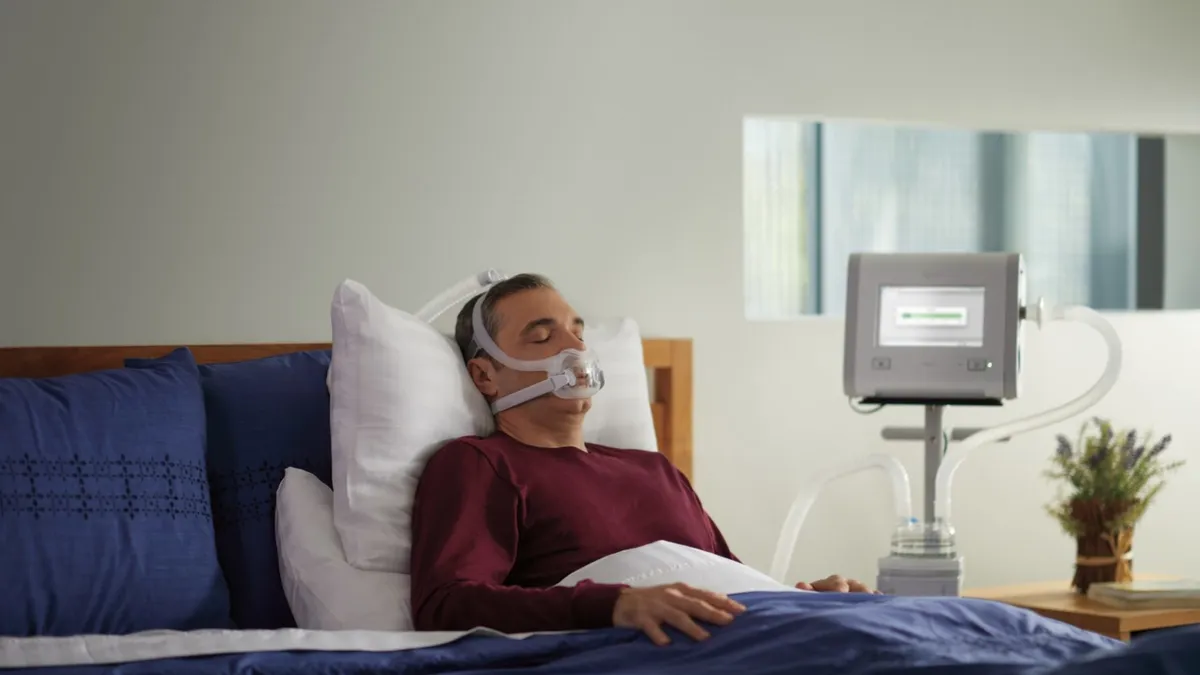Dive Brief:
- As many as 57,000 Evo ventilators are facing a voluntary recall by Philips over problems with the machines’ air flow sensor.
- The U.S. Food and Drug Administration has labeled the recall Class I, warning that filters must be changed regularly to prevent debris accumulating on sensors and impeding air flow.
- The recall is the second for the Evo ventilator in recent months, and follows the recall of more than 5 million CPAP, BiPAP and other breathing assistance devices made by Philips.
Dive Insight:
Philips’ Respironics unit has faced multiple recalls since it first flagged problems with soundproofing foam used in several of its sleep apnea devices and ventilators in 2021. The Evo ventilator used in hospital and professional care settings is facing its second Class I recall in recent months.
The Dutch device maker issued the recall on May 1, instructing users to change filters more frequently to prevent the devices from malfunctioning. Previously, use of the filter was declared optional by Philips.
Trilogy Evo ventilators, part of the most recent recall, were also flagged by Philps in March for a separate sensor problem, and in late 2021 for the sound abatement foam. The company also recalled its V60 respirators in January.
The FDA says the cause of the most recent problem is being investigated by Philips.
Philips spokesperson Mario Fante said in an email that Philips Respironics notified the FDA in April of a potential issue with the Trilogy Evo ventilator family where “extended exposure of these devices to environmental contamination may affect the device air path.”
He said the problem could affect 118,000 devices worldwide.
Philips says it has produced over 98% of the new devices and repair kits needed to replace the CPAP and BiPAP machines in its largest recall, and has already repaired and returned more than 2.3 million devices to consumers and distributors.










